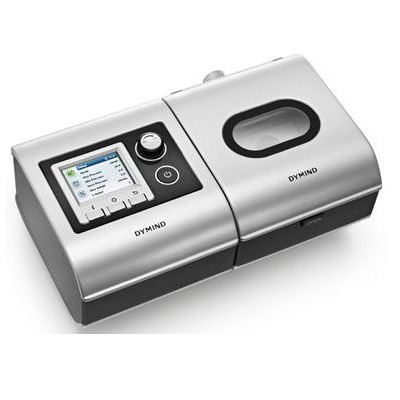Testing for Specific Genetic Biomarkers Could Diagnose SARS-CoV-2 Infection and Predict COVID-19 Severity
|
By HospiMedica International staff writers Posted on 27 Oct 2021 |

Scientists have discovered specific genetic biomarkers that not only show who is infected with COVID-19, but also offer insights into how severe the disease might be, thus filling a major diagnostic gap.
The new study by scientists at the University of Colorado School of Medicine (Aurora, CO, USA) suggests that specific signals from a process called DNA methylation varies between those infected and those not infected with SARS-CoV-2. And they can indicate the severity of the disease even in the early stages. DNA methylation, critical in how cells function, is an epigenetic signaling tool that cells use to turn genes off. Any mistakes in the process can trigger a variety of disease. The researchers believe that paying attention to these signals could help fill a needed gap in the current world of COVID testing.
Most COVID-19 antigen or rapid tests are dependent on viral strains and can carry high false negative rates. They do not predict if the virus is viable and replicating, nor do they predict clinical outcomes. A pre-symptomatic patient may test negative for the SARS-CoV-2 virus while patients who have recovered may still test positive despite no longer being infectious. The researchers did not know of any test that can predict the clinical course of COVID-19.
With that in mind, they analyzed the epigenome in blood samples from people with and without COVID-19. They did this by customizing a tool from Illumina called the Infinium Methylation EPIC array to enhance immune response detection. Researchers then profiled peripheral blood samples from 164 COVID-19 patients and 296 control patients. The peripheral blood DNA samples were collected from patients seen at UC Health and tested for SARS-CoV-2 epigenetic signatures starting March 1, 2020. The researchers discovered specific genetic markers of SARS-CoV-2 infection along with indications of how severe the disease might be. According to the researchers, the findings could ultimately lead to a new and more accurate way to test for COVID-19.
“I think this study is a tremendous proof-of-concept in the realm of COVID-19 testing, one that can be applied to other diseases,” said the study’s lead author, Kathleen Barnes, PhD, professor at the CU School of Medicine. “It’s a major move forward in the world of precision medicine.”
“We are exploring how this platform could add value to the COVID diagnostic world,” she said. “We think it adds value to knowing what patients develop more serious disease. This could tell you if you could ride out the infection or if it is likely to get worse.”
Related Links:
University of Colorado School of Medicine
Latest COVID-19 News
- Low-Cost System Detects SARS-CoV-2 Virus in Hospital Air Using High-Tech Bubbles
- World's First Inhalable COVID-19 Vaccine Approved in China
- COVID-19 Vaccine Patch Fights SARS-CoV-2 Variants Better than Needles
- Blood Viscosity Testing Can Predict Risk of Death in Hospitalized COVID-19 Patients
- ‘Covid Computer’ Uses AI to Detect COVID-19 from Chest CT Scans
- MRI Lung-Imaging Technique Shows Cause of Long-COVID Symptoms
- Chest CT Scans of COVID-19 Patients Could Help Distinguish Between SARS-CoV-2 Variants
- Specialized MRI Detects Lung Abnormalities in Non-Hospitalized Long COVID Patients
- AI Algorithm Identifies Hospitalized Patients at Highest Risk of Dying From COVID-19
- Sweat Sensor Detects Key Biomarkers That Provide Early Warning of COVID-19 and Flu
- Study Assesses Impact of COVID-19 on Ventilation/Perfusion Scintigraphy
- CT Imaging Study Finds Vaccination Reduces Risk of COVID-19 Associated Pulmonary Embolism
- Third Day in Hospital a ‘Tipping Point’ in Severity of COVID-19 Pneumonia
- Longer Interval Between COVID-19 Vaccines Generates Up to Nine Times as Many Antibodies
- AI Model for Monitoring COVID-19 Predicts Mortality Within First 30 Days of Admission
- AI Predicts COVID Prognosis at Near-Expert Level Based Off CT Scans
Channels
Critical Care
view channel
Light-Based Technology to Measure Brain Blood Flow Could Diagnose Stroke and TBI
Monitoring blood flow in the brain is crucial for diagnosing and treating neurological conditions such as stroke, traumatic brain injury (TBI), and vascular dementia. However, current imaging methods like... Read more
AI Heart Attack Risk Assessment Tool Outperforms Existing Methods
For decades, doctors have relied on standardized scoring systems to assess patients with the most common type of heart attack—non-ST-elevation acute coronary syndrome (NSTE-ACS). The GRACE score, used... Read moreSurgical Techniques
view channel
Robotic Assistant Delivers Ultra-Precision Injections with Rapid Setup Times
Age-related macular degeneration (AMD) is a leading cause of blindness worldwide, affecting nearly 200 million people, a figure expected to rise to 280 million by 2040. Current treatment involves doctors... Read more
Minimally Invasive Endoscopic Surgery Improves Severe Stroke Outcomes
Intracerebral hemorrhage, a type of stroke caused by bleeding deep within the brain, remains one of the most challenging neurological emergencies to treat. Accounting for about 15% of all strokes, it carries... Read morePatient Care
view channel
Revolutionary Automatic IV-Line Flushing Device to Enhance Infusion Care
More than 80% of in-hospital patients receive intravenous (IV) therapy. Every dose of IV medicine delivered in a small volume (<250 mL) infusion bag should be followed by subsequent flushing to ensure... Read more
VR Training Tool Combats Contamination of Portable Medical Equipment
Healthcare-associated infections (HAIs) impact one in every 31 patients, cause nearly 100,000 deaths each year, and cost USD 28.4 billion in direct medical expenses. Notably, up to 75% of these infections... Read more
Portable Biosensor Platform to Reduce Hospital-Acquired Infections
Approximately 4 million patients in the European Union acquire healthcare-associated infections (HAIs) or nosocomial infections each year, with around 37,000 deaths directly resulting from these infections,... Read moreFirst-Of-Its-Kind Portable Germicidal Light Technology Disinfects High-Touch Clinical Surfaces in Seconds
Reducing healthcare-acquired infections (HAIs) remains a pressing issue within global healthcare systems. In the United States alone, 1.7 million patients contract HAIs annually, leading to approximately... Read moreHealth IT
view channel
Printable Molecule-Selective Nanoparticles Enable Mass Production of Wearable Biosensors
The future of medicine is likely to focus on the personalization of healthcare—understanding exactly what an individual requires and delivering the appropriate combination of nutrients, metabolites, and... Read moreBusiness
view channel
Philips and Masimo Partner to Advance Patient Monitoring Measurement Technologies
Royal Philips (Amsterdam, Netherlands) and Masimo (Irvine, California, USA) have renewed their multi-year strategic collaboration, combining Philips’ expertise in patient monitoring with Masimo’s noninvasive... Read more
B. Braun Acquires Digital Microsurgery Company True Digital Surgery
The high-end microsurgery market in neurosurgery, spine, and ENT is undergoing a significant transformation. Traditional analog microscopes are giving way to digital exoscopes, which provide improved visualization,... Read more
CMEF 2025 to Promote Holistic and High-Quality Development of Medical and Health Industry
The 92nd China International Medical Equipment Fair (CMEF 2025) Autumn Exhibition is scheduled to be held from September 26 to 29 at the China Import and Export Fair Complex (Canton Fair Complex) in Guangzhou.... Read more

















